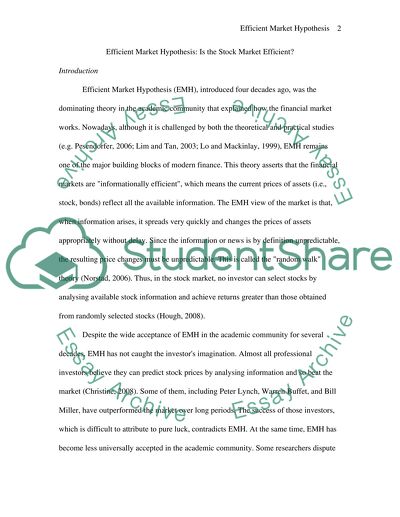Cite this document
(“Efficient Market Hypothesis: Is the Stock Market Efficient Literature review”, n.d.)
Retrieved de https://studentshare.org/finance-accounting/1391066-efficient-market-hypothesis-is-the-stock-market-efficient
Retrieved de https://studentshare.org/finance-accounting/1391066-efficient-market-hypothesis-is-the-stock-market-efficient
(Efficient Market Hypothesis: Is the Stock Market Efficient Literature Review)
https://studentshare.org/finance-accounting/1391066-efficient-market-hypothesis-is-the-stock-market-efficient.
https://studentshare.org/finance-accounting/1391066-efficient-market-hypothesis-is-the-stock-market-efficient.
“Efficient Market Hypothesis: Is the Stock Market Efficient Literature Review”, n.d. https://studentshare.org/finance-accounting/1391066-efficient-market-hypothesis-is-the-stock-market-efficient.


